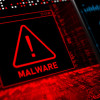After Stuxnet, a rush to find bugs in industrial systems
Kevin Finisterre isn't the type of person you expect to see in a nuclear power plant. With a beach ball-sized Afro, aviator sunglasses and a self-described "swagger," he looks more like Clarence Williams from the '70s TV show "The Mod Squad" than an electrical engineer.
But people like Finisterre, who don't fit the traditional mold of buttoned-down engineer, are playing an increasingly important role in the effort to lock down the machines that run the world's major industrial systems. Finisterre is a white-hat hacker. He prods and probes computer systems, not to break into them, but to uncover important vulnerabilities. He then sells his expertise to companies that want to improve their security.
Two years ago, Finisterre, founder of security testing company Digital Munition, found himself swapping emails with a staffer at Idaho National Laboratory's Control Systems Security Program, a project funded by the US Department of Homeland Security that is the first line of defense against a cyberattack on the nation's critical infrastructure.










































































